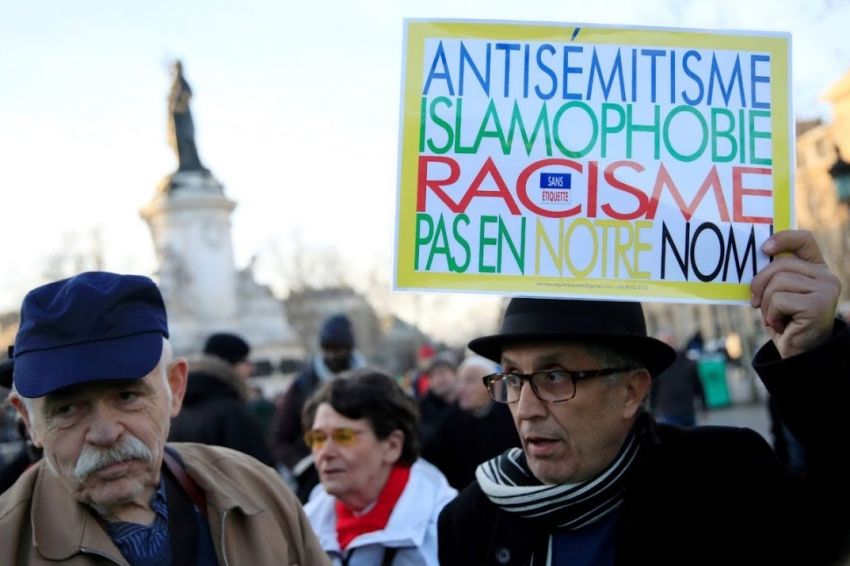
It has long been common to falsely label critics of the Israeli government as “antisemitic”. In recent years, however, a new variation on this theme has been to use the International Holocaust Remembrance Alliance (IHRA) working definition of antisemitism.
Notably, the former left-wing British Labour Party leader Jeremy Corbyn was attacked in this way. Instances of antisemitism were manufactured by a hostile media and right-wing Labour figures pressured the party to adopt the IHRA definition. Now, more than 30 countries have adopted this same definition.
Vivienne Porzsolt from Jewish Voices for Peace explains why this would be a problem.
The International Holocaust Remembrance Alliance (IHRA) developed what it called a “non-legally binding working definition of antisemitism” for the purpose of data collection at the IHRA Plenary in May 2016.
It consists of two sentences only: “Antisemitism is a certain perception of Jews which may be expressed as hatred towards Jews. Rhetorical and physical manifestations of antisemitism are directed toward Jewish or non-Jewish individuals and/or their property, toward Jewish community institutions and religious facilities.”
The IHRA then appended examples as “illustrations”, with which to guide its work. These have never been part of the official IHRA definition.
These examples focus largely on the idea that any criticism of Israel is antisemitic. This would make recent publications by Jewish Zionist writers and Israeli human rights organisations “antisemitic”.
For example, Peter Beinart, a prominent liberal Zionist, recently published an article in The New York Times titled: “I no longer believe in a Jewish state”. The Israeli human rights organisation B’Tselem issued a paper in January that declared Israel to be an apartheid state.
The IHRA definition is innocuous, but it is imprecise and useless for legal purposes. Indeed, one of its authors, Kenneth Stern, has strongly criticised its weaponisation to suppress the free speech of Palestinians.
Human rights lawyer Geoffrey Robertson QC found two problems with the IHRA definition. First, he said the definition is vague and “not fit for purpose” as a legal basis for identifying antisemitism. Secondly, he said that by declaring that so much criticism of Israel is antisemitic, it acts as a restriction of free speech and legitimate criticism of a state. It silences the Palestinians and their advocates and their struggle for rights.
The Israeli state has always used the accusation of antisemitism to silence its critics. But the IHRA definition gives it a powerful new weapon.
The Israeli Ministry of Strategic Affairs is campaigning vigorously to have the IHRA definition adopted by governments and organisations at all levels. Currently, there is also an international campaign to prevent Facebook including anti-Zionism as a form of hate speech.
In response, a number of Holocaust and Jewish studies academics have drafted an alternative definition of antisemitism. The Jerusalem Declaration aims to deny sole authority to the IHRA definition and be an alternative to those who do want to deal with antisemitism without blocking free speech.
It is not without its critics and it certainly has its limitations, in that it focuses too much on Israel-Palestine and not nearly enough on the real threat of antisemitism and the racism of the far right.
There is also a problem with dealing with antisemitism as a special form of hatred, instead of one form of racism among others.
It isolates Jews, once again, as being unique in suffering hatred and oppression, rather than linking us with others subjected to similar oppression.
The Israeli Ministry of Strategic Affairs is actively promoting the IHRA definition to silence Palestinian voices and suppress the historical reality of Zionist dispossession. This can be seen as its answer to the Boycott, Divestment and Sanctions (BDS) campaign.
The main danger it sees in BDS is a “delegitimisation” of Israel.
It must be said that BDS campaigners are having some success. That is why it needs to be a key point of struggle for Palestine solidarity activists at this time.